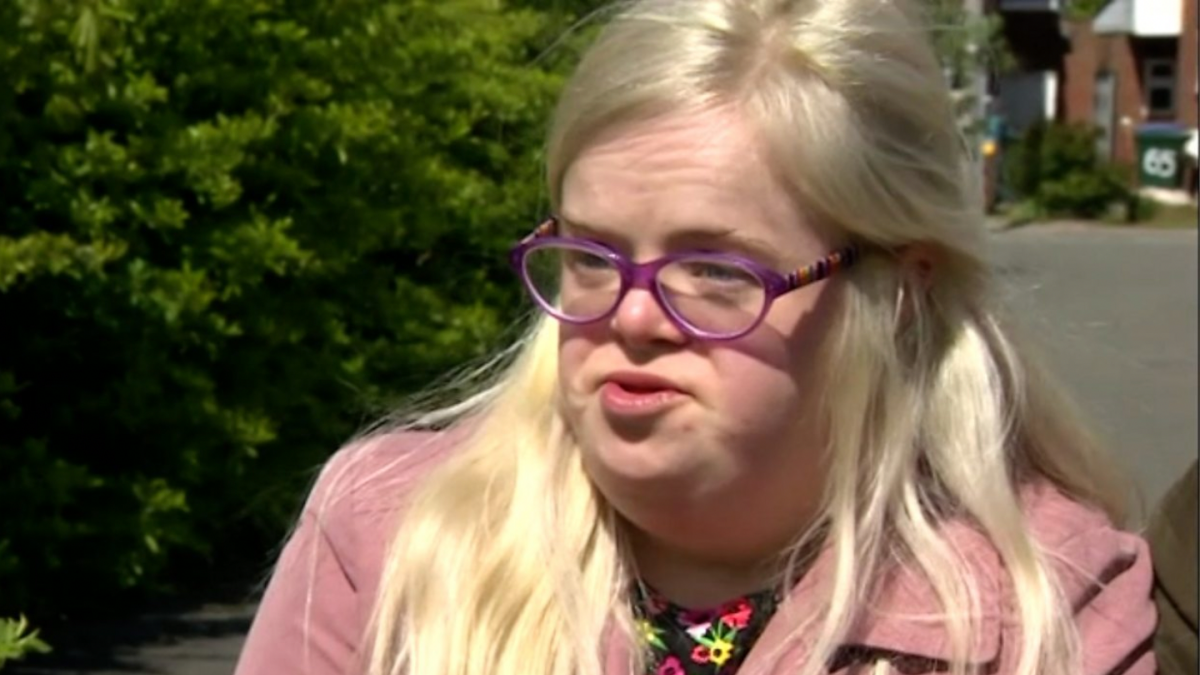The case is to review current laws that allow for foetuses with Down's syndrome to be aborted
Heidi Carter and Máire Lea-Wilson, from Coventry and Brentford, respectively, have been campaigning to have current
abortion legislation that pertains to Down's syndrome abortion reviewed.
As reported by the BBC, the pair have successfully managed to get a High Court hearing on the 6th and 7th of July, which will challenge the current clause that allows for
abortion right up until the point of birth for a foetus with Down's syndrome.

Carter and Wilson's argument is that the standard 24-week limit that applies to foetuses - unless there is a substantial risk of "physical or mental abnormalities as to be seriously handicapped" - should also be the same in instances where a baby would be born with Down's syndrome, labelling the current law as "downright discrimination".
She said; "A baby without Down's syndrome can be aborted up to 24 weeks, but a baby like me and James can be aborted to birth. It's downright discrimination.
"People shouldn't be treated differently because of their disabilities.The reason it's important to me and James is because we're someone who has Down's syndrome and we want to show the world we have a good quality of life."
It is estimated that around
90% of women whose children will have Down's syndrome choose to have an abortion and speaking to the BBC back in October, one woman said that she was "
offered 15 terminations, even though we made it really clear that it wasn't an option for us [...] they really seemed to push and really seemed to want us to terminate".
https://www.youtube.com/watch?v=Qz0pU7TKqb0
Mrs. Carter (who has been campaigning under her maiden name, Crowter, for several years) had previously written to Health Secretary,
Matt Hancock, stating that all foetuses with non-fatal disabilities should be judged by the same rule, meanwhile, Mrs. Lea Wilson said the case is not about the abortion debate but about "removing a specific instance of inequality of the law."
She said; "I have two sons that I love and value equally, but the law does not value them equally.
"My motivation for taking this joint legal action with Heidi has always been simple. As a mother, I will do all that I can to ensure the fair and equitable treatment of my son, Aidan."
As with abortion as a whole, this issue is not just localised to the UK; in Arizona,
Governor Doug Ducey has signed an abortion ban that stops babies from being terminated solely because of genetic abnormalities such as Down's syndrome. As such, doctors who perform abortions on foetuses that have survivable genetic issues can face felony charges.
Similarly, in Raleigh, North Carolina,
a current bill looks to make it illegal for babies to be aborted based on genetic issues, as the current legislation even allows for foetuses to be terminated based on their race. It was only in 2013 that state law made it illegal to abort based on gender, with such practices having been described as "discriminatory eugenic abortion".
https://www.youtube.com/watch?v=4l_CEZMtSd8
State representative, Dean Arp, said: “We do not want to be the kind of society that not only discriminates, but disposes of children because of the way they are created [...] North Carolina citizens do not want to be that kind of society either.”



 Carter and Wilson's argument is that the standard 24-week limit that applies to foetuses - unless there is a substantial risk of "physical or mental abnormalities as to be seriously handicapped" - should also be the same in instances where a baby would be born with Down's syndrome, labelling the current law as "downright discrimination".
She said; "A baby without Down's syndrome can be aborted up to 24 weeks, but a baby like me and James can be aborted to birth. It's downright discrimination.
Carter and Wilson's argument is that the standard 24-week limit that applies to foetuses - unless there is a substantial risk of "physical or mental abnormalities as to be seriously handicapped" - should also be the same in instances where a baby would be born with Down's syndrome, labelling the current law as "downright discrimination".
She said; "A baby without Down's syndrome can be aborted up to 24 weeks, but a baby like me and James can be aborted to birth. It's downright discrimination.